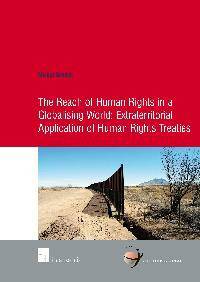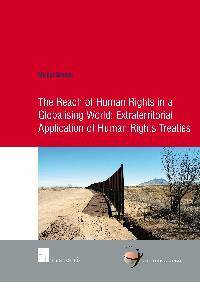
- Afhalen na 1 uur in een winkel met voorraad
- Gratis thuislevering in België vanaf € 30
- Ruim aanbod met 7 miljoen producten
- Afhalen na 1 uur in een winkel met voorraad
- Gratis thuislevering in België vanaf € 30
- Ruim aanbod met 7 miljoen producten
Zoeken
The Reach of Human Rights in a Globalizing World: Extraterritorial Application of Human Rights Treaties
Michal Gondek
€ 75,00
+ 150 punten
Omschrijving
In the globalizing world of today, the conduct of states often affects the human rights of persons situated outside of those states’ territories. The problem of applying human rights to such state conduct has become increasingly topical as a result of phenomena such as the ‘war on terror’, foreign military interventions and economic globalization. The controversies as regards the applicability of human rights treaty law in such cases stem mainly from the wording of the relevant treaty provisions. The principal treaties on civil and political rights require states to guarantee certain human rights to persons ‘within their jurisdiction’, while treaties on economic, social and cultural rights specifically envisage international cooperation of states parties for the purposes of achieving these rights. The meaning of ‘jurisdiction’ and the precise nature and content of the obligation of international cooperation are subject to debate.
This study explores the question of extraterritorial application of principal universal and regional human rights treaties. It covers treaties on civil and political rights as well as those on economic, social and cultural rights. The study seeks to determine to what extent and under which circumstances human rights treaties are applicable to state conduct which affects the human rights of persons situated outside the borders of the state party in question. The problem is analyzed by reference to the rules of treaty interpretation and in the conceptual framework of public international law. It contains thorough analysis of preparatory works of the relevant treaties, the case law of the International Court of Justice and of human rights courts on the subject, as well as other output of human rights treaty bodies. State practice, including the case law of national courts, is also explored. The study argues for a flexible approach to extraterritorial application of human rights treaties, which would make it possible for the human right systems to respond to the challenges posed by the ever more notorious extraterritorial state conduct.
This study explores the question of extraterritorial application of principal universal and regional human rights treaties. It covers treaties on civil and political rights as well as those on economic, social and cultural rights. The study seeks to determine to what extent and under which circumstances human rights treaties are applicable to state conduct which affects the human rights of persons situated outside the borders of the state party in question. The problem is analyzed by reference to the rules of treaty interpretation and in the conceptual framework of public international law. It contains thorough analysis of preparatory works of the relevant treaties, the case law of the International Court of Justice and of human rights courts on the subject, as well as other output of human rights treaty bodies. State practice, including the case law of national courts, is also explored. The study argues for a flexible approach to extraterritorial application of human rights treaties, which would make it possible for the human right systems to respond to the challenges posed by the ever more notorious extraterritorial state conduct.
Specificaties
Betrokkenen
- Auteur(s):
- Uitgeverij:
Inhoud
- Aantal bladzijden:
- 442
- Taal:
- Nederlands
- Reeks:
Eigenschappen
- Productcode (EAN):
- 9789050958172
- Verschijningsdatum:
- 6/04/2008
- Uitvoering:
- Paperback

Alleen bij Standaard Boekhandel
+ 150 punten op je klantenkaart van Standaard Boekhandel
Beoordelingen
We publiceren alleen reviews die voldoen aan de voorwaarden voor reviews. Bekijk onze voorwaarden voor reviews.








